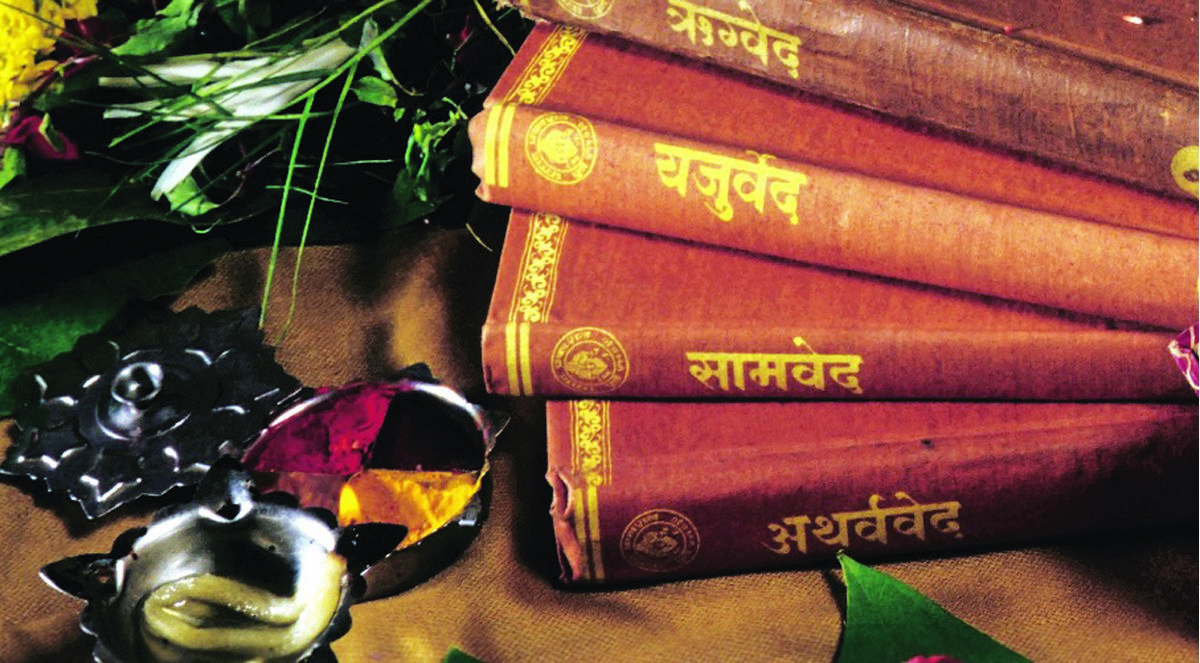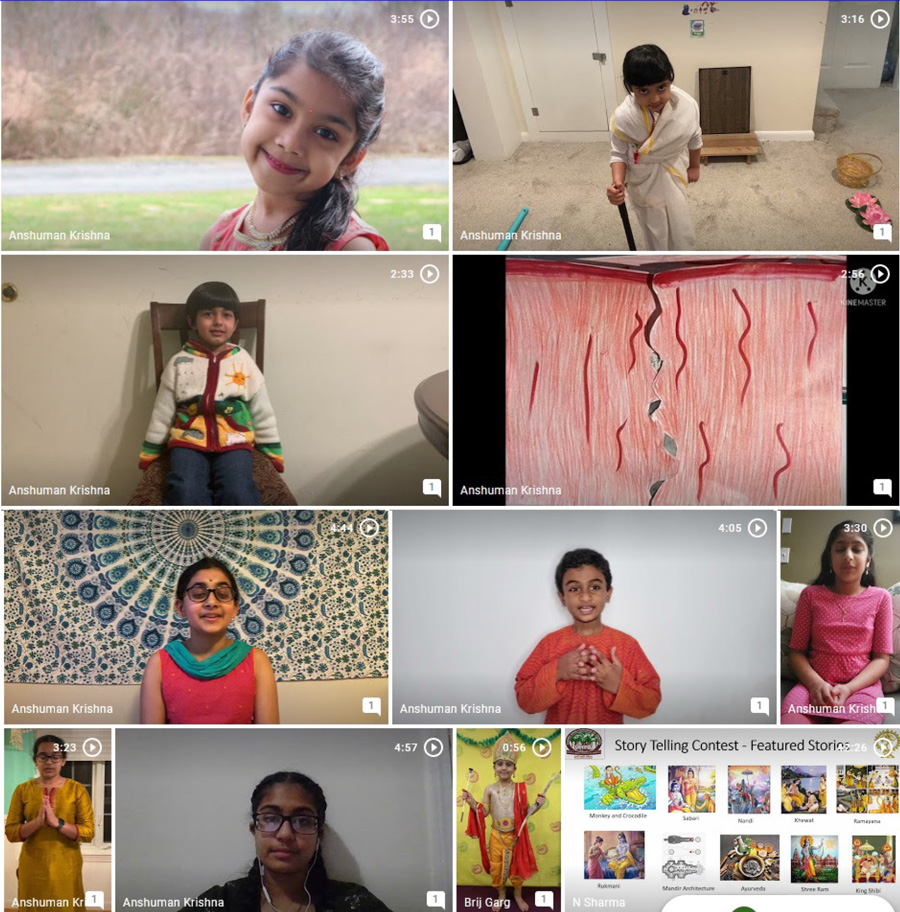Hinduism is known by many as the world’s oldest religion, with a history that spans several millennia. The world in which foundational Hindu teachings and ideas first began taking form was a world far different from the one I am growing up in now, as a young, 21-year-old university student who was born in the United States and lives in Montreal. And yet, true to its nature as Sanatana (eternal) Dharma, Hinduism’s themes, teachings, and values continue to play an ever-important, foundational role in my life, mentoring me through the many complex challenges and intricacies of modern life. Many of the themes that distinguished a Dharmic life thousands of years ago remain just as relevant in the twenty-first century, and it is for this reason that Hinduism has stood the test of time and continues to inform, influence, and inspire.
A recurrent theme in Hinduism is the significance of pursuing truth and knowledge. Of course, that pursuit refers in part to the ultimate truth: the realization of Brahman, the absolute reality of the universe. But to be a Hindu is also to develop a fundamental respect for the exchange of knowledge of all types, whether that be Vedic knowledge, scientific knowledge, or knowledge and mastery of the arts. My Hindu upbringing frequently instilled that respect in me. During Saraswathi Puja, I gathered all my textbooks and all my learning materials and prayed for another year of learning and enrichment. I learned to respect my gurus as the imparters of knowledge, finding joy in thanking those gurus with gurudakshina, and I also learned to respect the role of the student who partakes in that knowledge. There was always a connection between my overall spiritual journey and the countless types of learning that I could engage in.
As I have grown up, I have only grown to appreciate the importance of pursuing knowledge and truth more. I have also come to realize that in the modern world, this value bears a special weight. Thanks to the widespread use of technology around us, we are surrounded by abundant information readily available at our fingertips. However, as the amount of information instantly accessible to us has propagated, misinformation and ‘alternative facts’ have begun to propagate just as quickly. It has become increasingly easy and even tempting to prioritize the ease and speed with which we can obtain information over the quality and truth of said information. In such a world, it is even more imperative to take pride in learning and obtaining knowledge, and to make it the goal of our learning to achieve a higher, transcendent truth. A follower of Sanatana Dharma regards vidya – correct, irrefutable knowledge – as one of the most essential goals of their life. In the chaos of twenty-first century life, that means maintaining that commitment no matter the noise and distractions around us, remaining reverent of the process of dutifully, patiently learning and broadening our minds.
Somewhat relatedly, another key Hindu value to call upon in the modern world is the value of embracing multiple paths and ideas. We live in a world that grows seemingly more and more polarized with every passing day. In such times, I especially appreciate that Hinduism stands quite unique in its tolerance and acceptance of wide-ranging beliefs and ideas. To be a Hindu is to explore one’s own dharma and how to think, act, and grow in accordance with that dharma. It is not to accept what we are told at face value, or to believe that there is only one way or path towards finding fulfillment and peace. In the immortal words of Swami Vivekananda, “I am a Hindu. I am proud to belong to a religion which has taught the world both tolerance and universal acceptance. We believe not only in universal toleration, but we accept all religions as true.” Even within the umbrella of ‘Hinduism,’ there is a beautifully diverse, wide-ranging spectrum of beliefs, philosophies, and schools of thought. As a result, even among a group that might collectively identify under the umbrella of ‘Hinduism,’ I find there to be an incredible potential for dialogue and discussion about almost any aspect of life.
Both on a community and individual level, this openness is one of the liberating ways in which we are encouraged to embark on the journey to explore and develop our spirituality. In today’s world, this aspect of Hinduism is one in which I find a great deal of refuge and solace. All around us, we hear of conflicts and issues arising from a lack of respect for different ideas and an unwillingness to engage in discussion. Often, when we observe so much vitriol and hate, it can be difficult to resist the urge to join in on the mudslinging and to fight fire with fire. To do so would be contrary to Hindu values, and I habitually find myself meditating on those values to remind myself that no matter what happens around me, my duty is to prioritize acceptance and open-mindedness. It is ever-important in the world around us today that we remain mindful of the principles that should unite us all, such as compassion and global kinship, regardless of our faiths, backgrounds or unique identities. Those of us who treasure this belief as fundamental to our Hindu or Dharmic identities therefore have a key role to play in contemporary life as advocates of respect, discourse, and goodwill.
Hindus in the 21st century also have a part to play in the wider movement to protect and respect the planet and the natural world we inhabit. At a time when issues like climate change are at the forefront of many political discussions, and when the environment is an object of intense advocacy for action and reform, Hindus’ reverence for all forms of life and for the Earth itself is crucial. Hindus remain committed to and empowered by the belief that Brahman is present in all that exists in the world around us, including in all living creatures. From the time I was a child, I have understood that the Earth is worthy of our love, respect, care, and gratitude. Hinduism instructs us to value all the resources that nature has gifted us, and to remain actively thankful for those gifts. We are not to view them with entitlement, or to become greedy and take more than what we need or that the Earth has the capacity to give. To a Hindu, there is little to no meaningful distinction between us and every other element of the world we call home.
This consciousness of the interconnectedness between humans and the natural world is a vital theme in today’s world, and it will only continue to be so. Hindus have a critical role to play in safeguarding the natural world at a time when there is an urgent need to protect, conserve, and cherish the nature present on Earth. Much of what we as humans have done to contribute to the climate crisis and the loss of nature around the globe betrays a lack of awareness or appreciation for the interdependence that characterizes the environment and the living things it houses. Therefore, it is of chief importance that we remember that our dharma includes our responsibility to care for the planet and treat the Earth as Devi, deserving of our devotion, gratitude, and protection. The Dharmic voice can be a powerful one in the global fights for causes such as climate action, animal rights, and sustainable living. I know that I, for one, feel that my Hindu values empower me to educate myself on these issues, commit to planning solutions, and advocate for more widespread awareness.
Far from feeling that a philosophy as ancient as Sanatana Dharma bears little significance in 2022, I feel that my Hindu values have given me major guiding principles with which I can navigate a complicated world. As a member of Gen Z, I find myself at the crossroads of multiple discussions on key contemporary issues, global movements, and questions of morality and duty. I know that I am not at all alone in this regard. In my position as one of the co-founders of the McGill Dharma Society, McGill University’s official campus representation for students of Dharmic faiths, I often engage in conversations with my peers in numerous Dharmic faith communities, both in Canada and beyond. For many young people immersing themselves in Dharmic values and ideas, the faiths and traditions we bring with us through life give us direction, comfort, companionship, and purpose. Our discussions form bridges of connection between people of different faiths, nationalities, races, languages, and identities, and those bridges, in turn, highlight the united and harmonious nature of the universe. In a world that can at times feel turbulent, uneasy, and tense, Hindu values such as truth, knowledge, open-mindedness, and environmental awareness are vital to regaining the sense of peace and fulfillment attainable through a life lived in pursuit of Dharma.
About the Author
Shreya Mahasenan is currently a 4th year undergraduate student at McGill University in Montréal, Canada, where she is majoring in Anatomy and Cell Biology and minoring in Political Science. In 2020, she successfully helped establish the McGill Dharma Society to provide official campus representation to Hindu and other previously underrepresented students at the university. In addition to her other campus commitments, Shreya enjoys playing guitar and violin, singing, ice hockey, and writing.



![[ India Today ] Ohio senator JD Vance thanks wife, a Hindu, for helping him find Christian faith](https://hinduvishwa.org/wp-content/uploads/2024/06/us-senator-jd-vance-reveals-how-his-hindu-wife-usha-helped-him-find-his-christian-faith-image-re-272530504-16x9_0-120x86.webp)










